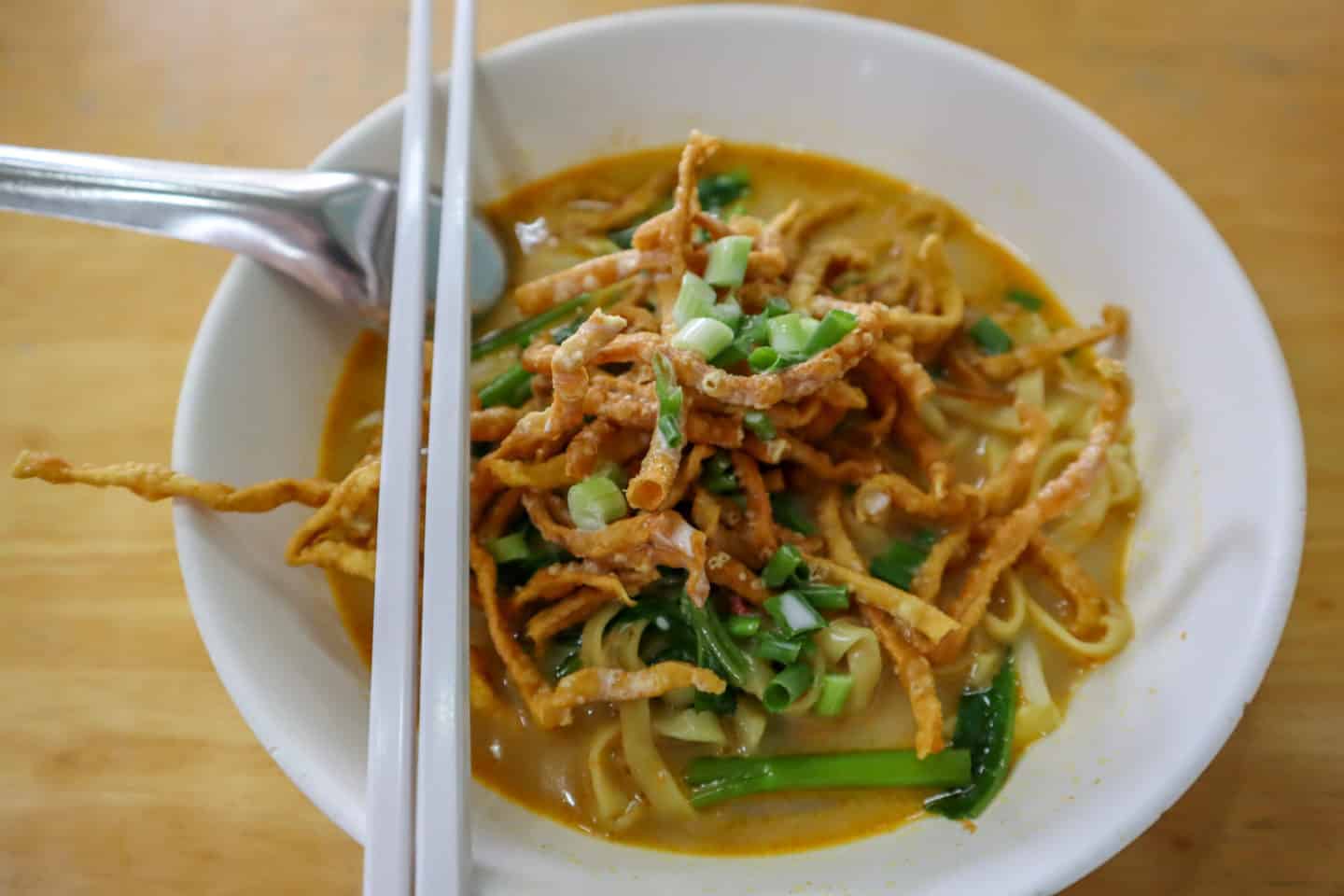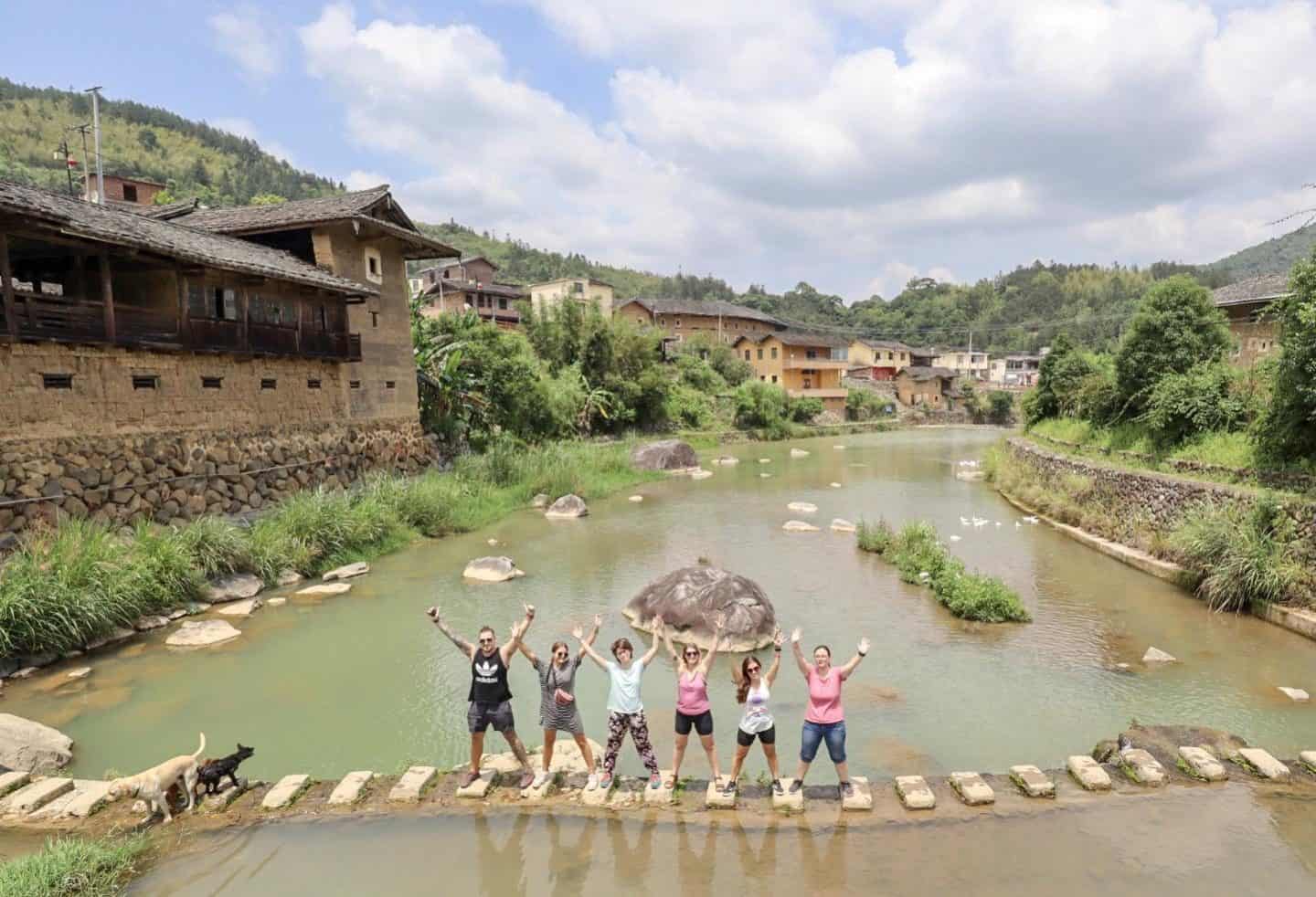Does it seem like everyone is going travelling these days and for a really long time? Well, Sainsbury’s Bank Travel Money has revealed that travelling for six months is the new norm when going on an extended international trip!
Trips like this are popular with students finishing university who want to see the world and have some fun before they delve into employment- it seems 6 months may be the new gap year!
But travelling to multiple international countries in one extended trip is not reserved only for students, many people in their 20’s and 30’s are quitting their jobs or taking a sabbatical from their current job because they have a huge desire to travel and see the world before settling down.
There are also people like myself who have the travel bug and have set up their life to work around doing multiple extended trips, and my personal situation is that I have now turned these extended trips into my work and career.
Taking an extended international trip is invaluable for our self-growth. Seeing the world, spending our money on experiences and meeting people around the world – locals and fellow travellers, builds us into better humans. It helps us see the world as one, and for those of us who take these trips, or are about to, we are very lucky to be able to do this.
I have taken many backpacking trips which have ranged from 1 month to 18 months and I know many people who have too. The time leading up to a trip is exciting, we spend our spare time searching where to go, being careful of how much money we’re spending to help save money for the trip and catching up with friends to say goodbye.
However in the midst of this, when preparing for a gap year, sabbatical, backpacking trip or a combination of all of these trips, there are certain things we need to do and should do before going away so that we’ll have the best trip, be safe whilst we’re away and have an easier time when we return home.
I’m a big fan of thinking about my future self and what would make my future self proud. Often being organised in the moment takes extra work but our future self thanks us for it, and this is the case with being organised before we go away on an extended trip.
Here is my backpacking checklist with 12 simple things you can do to prepare for an extended international trip, you can use this list as a checklist to help you remember everything because even after multiple trips I still have to remind myself each time!
Backpacking Checklist

Finances.
Purchase Travel Insurance.
Purchasing travel insurance is so important, it’s one of the backpacking essentials and one of the key things you need to do to prepare for your trip abroad. There’s a common quote that says ‘if you can’t afford travel insurance you can’t afford to go away’ and it really is true. Insurance is the one thing we pay for and hope to never use.
When looking for the best travel insurance for a gap year and a long trip, be sure to look into extended travel insurance. Some single travel insurance policies have restrictions on the number of days you can be away for, but extended trip travel insurance takes this into account and can cover you for up to one whole year, or even longer.
For example, Sainsbury’s Bank offers Extended Stay Travel Insurance with 3 different policies to suit you and your trip – Silver, Gold and Platinum. Their Platinum policy covers you for up to 548 days away which is fantastic and one less thing to worry about if you’re going away for a long time or not sure of your return date.
Exchange Money for Your First Country Before you Leave.
Another way to really prepare for your trip, especially if this is your first trip away, is to exchange your travel money before you leave your home country.
These days ATM’s are abundant in most countries but when you get off the plane, perhaps with some jet lag, the last thing you want to be doing is remembering to get local currency from an ATM and working out the exchange rates.
The exchange rate is often a lot better when you purchase your currency in advance too. For example, Sainsbury’s Bank offers 0% commission on all foreign currency and if you have a Nectar card you can get an even better exchange rate meaning more money to take away with you.
I would advise to only get cash out for your first country / first few weeks as it’s good to be prepared and have cash, especially as most countries you may travel to on a gap year or sabbaticals like Asia, Central America, South America and Africa still use cash over card. However, you do not want too much cash on you so that you become vulnerable.
Don’t Sell Everything.
This piece of advice is different from a lot of advice you’ll see when searching for ideas on how to save money for a gap year or how to make money before travelling because often selling your things can bring in a bit of instant cash.
However, I really urge you to think about what you want to sell first. If you’re going on your gap year or a backpacking trip with the intent of returning to carry on your life at home, you’ll probably need these things in a years time. Selling them may bring you instant cash but you’ll either regret it later or need to re-buy the items once you’re back.
If you have clothes, technology or furniture you no longer use and you think you could sell some of these on eBay or at a car boot sale before you go travelling then go for it, it’s good to get rid of things we don’t use or need, but don’t sell all of your stuff to make money for your trip if you think you’ll want it when you get back.
Related Post: 20 Backpacking Essential Items That Will Save You Space, Time & Money!
Get a Travel Money Card.
Talking of having too much cash on you when you travel, this is where a prepaid travel money card comes in handy and all travellers are using them, or should be using them!
I much prefer using a travel money card rather than my main bank card when I’m away because I have control over how much money is on the card which means I can keep a track of my spending, if I happen to lose the card, or it gets copied, there’s no access to my actual bank account, and depending on where I’m visiting the exchange rates are much better using a travel money card than my usual bank card.
For example, Sainsbury’s Bank offers a Cash Passport which you apply for online and then you load money onto the card in up to 10 popular currencies such as Euros, Australian Dollar, New Zealand Dollar and South African Rand. If you’re going to countries that are not on this list you can top up the card with your home currency such as GBP and the card will work out the conversion when you use it say Thailand, Mexico, Vietnam, etc.
Having issues with money when travelling is something you really want to avoid as much as possible as it adds unnecessary stress onto your trip, so by being organised and applying for a Cash Passport before you go will help you save money in exchange rates and also keep your finances safe and protected.

Life Admin.
Make Notes of Where You’re Storing Things.
This is something I was very organised with last year before my 8 month Asia trip and my future self thanked me for it!
If you are putting your things into storage whilst on your gap year or sabbatical trip, perhaps in storage at your parents, friends, or even in a storage container, make sure you make notes of what is in each bag, box or suitcase and where you’ve put everything!
It’s easy to think ‘I’ll remember where my winter clothes are’, but when you get back from your extended trip and you desperately need that coat you haven’t thought about in a year, you’ll wish you made a note of where to find it!
Update Your CV.
If you’re leaving a job to go travelling, before you leave the job, update your CV with what you did in the role. After travelling around the world for a few months or a year, you’ll quickly forget about the finer details you did in that job and when it comes to updating your CV when you get back it will be much harder to do and you may miss out important things.
Update it before you get on your flight and again, your future self will thank you.
Make a Copy of Your Passport.
Scan and make a copy of your passport before you leave so if the worst happens and you lose it you have a copy on file.
In addition to this, if you’re moving to Australia for example on a working holiday visa, job agencies usually want to see a copy of your passport and this way you’ll have it handy rather than trying to work out how to make a copy when you’re away.

Pre-Travel Admin.
Check Visa Requirements.
This can catch a lot of travellers out. Be sure to research the places you’re going to in advance to check if you need to get a visa in advance or need a certain amount of money in a foreign currency to get a visa on arrival.
For example, India is a country you need to have a visa before which you can apply for and pay for online, same with Cambodia, Vietnam and Australia. Some countries provide a free visa on arrival which is usually 30 days like Thailand. It’s also worth checking yourself and not relying on what you’ve heard from other people as visa rules are always changing. Sri Lanka used to require a visa before arrival but is currently trialling a free visa on arrival for many nationalities.
Check onward flight requirements.
Along with needing a visa, many countries also require you to show proof of a flight leaving the country when you check-in at your departing airport. This applies for Sri Lanka and India for example, be sure to do some research around this and book a flight out within your visa limit. If you don’t want to book a flight out as you want to be flexible, read this post to help work around that.
Generally countries with a lot of land borders like those in Central and South America do not require proof of exit as you’re most likely to leave by bus via land and you will not book the journey in advance which they understand.
Either way, be sure to look into this as thoroughly as possible and like the visa situation, make notes for all the countries you plan on visiting so you have no nasty airport surprises.
Book your First 1-2 Nights Accommodation in Advance.
You may want to travel like a free spirit and not book accommodation in advance, instead preferring to book it on the day or when you arrive, this is fine but I’d strongly recommend booking at least your first few nights accommodation in the first place you arrive into so you know where to go from the airport. The other main reason is that most immigration forms when you land will ask for an address so you need to know an accommodation address to detail this on the form.

Health.
Check What Travel Jabs you Need.
If you’re going to places like Asia, South or Central America and Africa you will need to have certain jabs done before you go away. The best thing to do is to call your doctor and ask to speak to a travel nurse. Tell them all of the places you’re going and intend on going so that they can advise you on what jabs you need.
I make sure to make a note of all the jabs I’ve had done and their expiry dates which the nurse will give you, this way I easily know when I’ll need my next round so I’m always covered and protected when I’m away in case anything happens.
Book in Dentist and Doctor Appointments.
Despite having travel insurance you really don’t want to use it by going to the dentist or to see a doctor abroad. I always book in for a dental check-up before I go away to ensure everything is ok and if they recommend work I get it done as I do not want toothache when I’m away!
If you have prescriptions or usually have regular check-ups at the doctor, be sure to get enough of your prescription before you go away and tell them you’re going away so they know.
Now you’ll be set to go on your trip and thanks to these 12 checklist items of things to do before you go travelling. You’ll be prepared, have your money, health and life admin in a good state for whilst you’re travelling, and for when you come home!
This post is in partnership with Sainsbury’s Bank but all thoughts, ideas and opinions remain my own.

Maja
Friday 22nd of November 2019
This is such a great post Ellie! I always have a copy of my passport, both a physical one and one on my phone - just in case I'd ever need to use it! Great idea about updating your CV as well... that's the last thing I think about when I'm traveling ha so doing it before is super helpful! :)